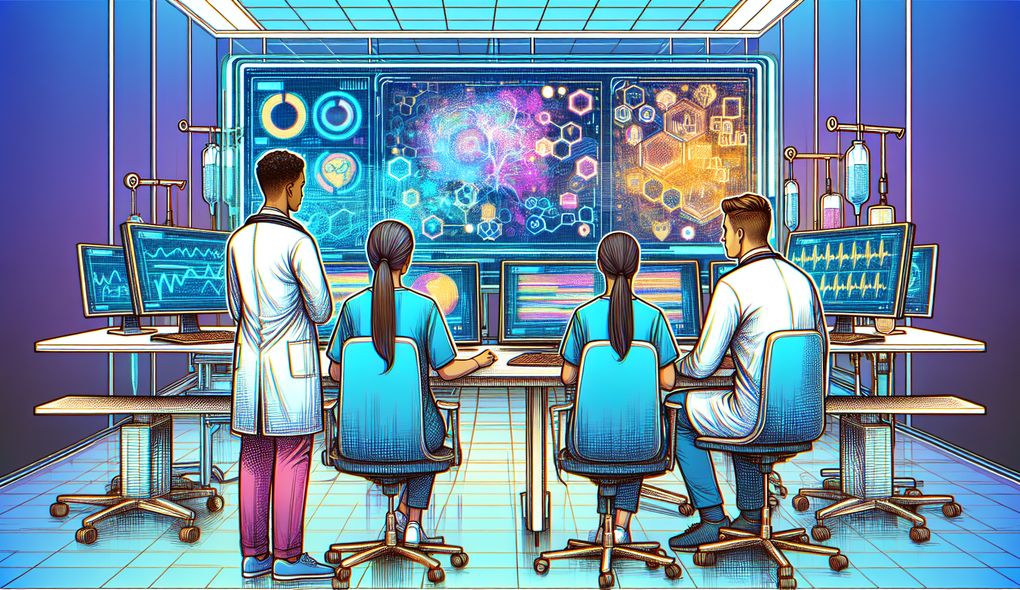What are the key skills required for a Clinical Analyst?
INTERMEDIATE LEVEL

Sample answer to the question:
The key skills required for a Clinical Analyst include strong analytical and critical thinking skills, excellent communication and presentation skills, the ability to work collaboratively in a multidisciplinary healthcare team, being detail-oriented with a strong focus on accuracy and quality, having advanced IT skills including proficiency with data analysis software, and knowledge of medical terminology and understanding of clinical processes.
Here is a more solid answer:
As a Clinical Analyst, strong analytical and critical thinking skills are essential in interpreting and analyzing clinical data. This involves identifying trends, patterns, and insights that can inform clinical decisions and research initiatives. Excellent communication and presentation skills are necessary for effectively communicating findings to healthcare providers and administrators through reports and presentations. Collaborating with healthcare professionals, such as physicians and nurses, to identify improvement areas in patient care and outcomes requires the ability to work effectively in a multidisciplinary team. Being detail-oriented is crucial for ensuring the accuracy and integrity of clinical data, as well as maintaining a focus on quality. Advanced IT skills, including proficiency with data analysis software, are necessary for collecting, interpreting, and reporting on clinical data. Lastly, having knowledge of medical terminology and understanding clinical processes is important in comprehending and analyzing the data in the context of healthcare practices.
Why is this a more solid answer?
This is a solid answer because it provides specific examples and explanations for each of the required skills. However, it could be improved by including more detailed examples or experiences related to each skill.
An example of a exceptional answer:
An exceptional Clinical Analyst possesses strong analytical and critical thinking skills that enable them to not only interpret and analyze clinical data but also identify opportunities for process improvement and proactive interventions to enhance patient care. They excel in communicating complex findings in a clear, concise, and impactful manner, adapting their communication style to the needs of different stakeholders. Their ability to collaborate seamlessly in a multidisciplinary healthcare team fosters an environment of shared learning and effective knowledge transfer. Attention to detail is exemplified through precision in data collection, ensuring data integrity, and implementing rigorous quality control measures. They demonstrate advanced IT skills beyond proficiency with data analysis software, leveraging their expertise to drive innovation in health informatics technology and contribute to the development of cutting-edge solutions. Their deep understanding of medical terminology and clinical processes allows them to contextualize data analysis within the broader healthcare landscape, drawing actionable insights that lead to data-driven decision-making and improved patient outcomes.
Why is this an exceptional answer?
This is an exceptional answer because it goes beyond the basic requirements and provides an in-depth explanation of how each skill is applied in a clinical analyst role. It also highlights the candidate's ability to not only perform the job but also drive innovation and contribute to the development of healthcare technology solutions. Additionally, it emphasizes the importance of data-driven decision-making and improved patient outcomes.
How to prepare for this question:
- Review your experience and identify specific instances where you have demonstrated strong analytical and critical thinking skills in a healthcare setting.
- Prepare examples of how you have effectively communicated complex findings to different stakeholders, such as healthcare providers and administrators.
- Think about your experiences working collaboratively in a team, particularly in a multidisciplinary healthcare environment, and highlight your contributions and successes.
- Reflect on your attention to detail and how it has been instrumental in maintaining data integrity and ensuring accuracy in your previous roles.
- Familiarize yourself with data analysis software and methodologies, and showcase your proficiency in these tools during the interview.
- Refresh your knowledge of medical terminology and clinical processes, and be prepared to discuss how you apply this knowledge in your analytics work.
- Stay up to date with the latest trends in healthcare technology and data analysis methods, and be ready to discuss how you keep yourself informed and adapt to new developments.
- Highlight any certifications or additional experiences in health informatics or related areas, as they demonstrate your commitment to professional growth and specialization.
What are interviewers evaluating with this question?
- Analytical skills
- Communication skills
- Collaboration skills
- Attention to detail
- IT skills
- Medical terminology and clinical process knowledge

